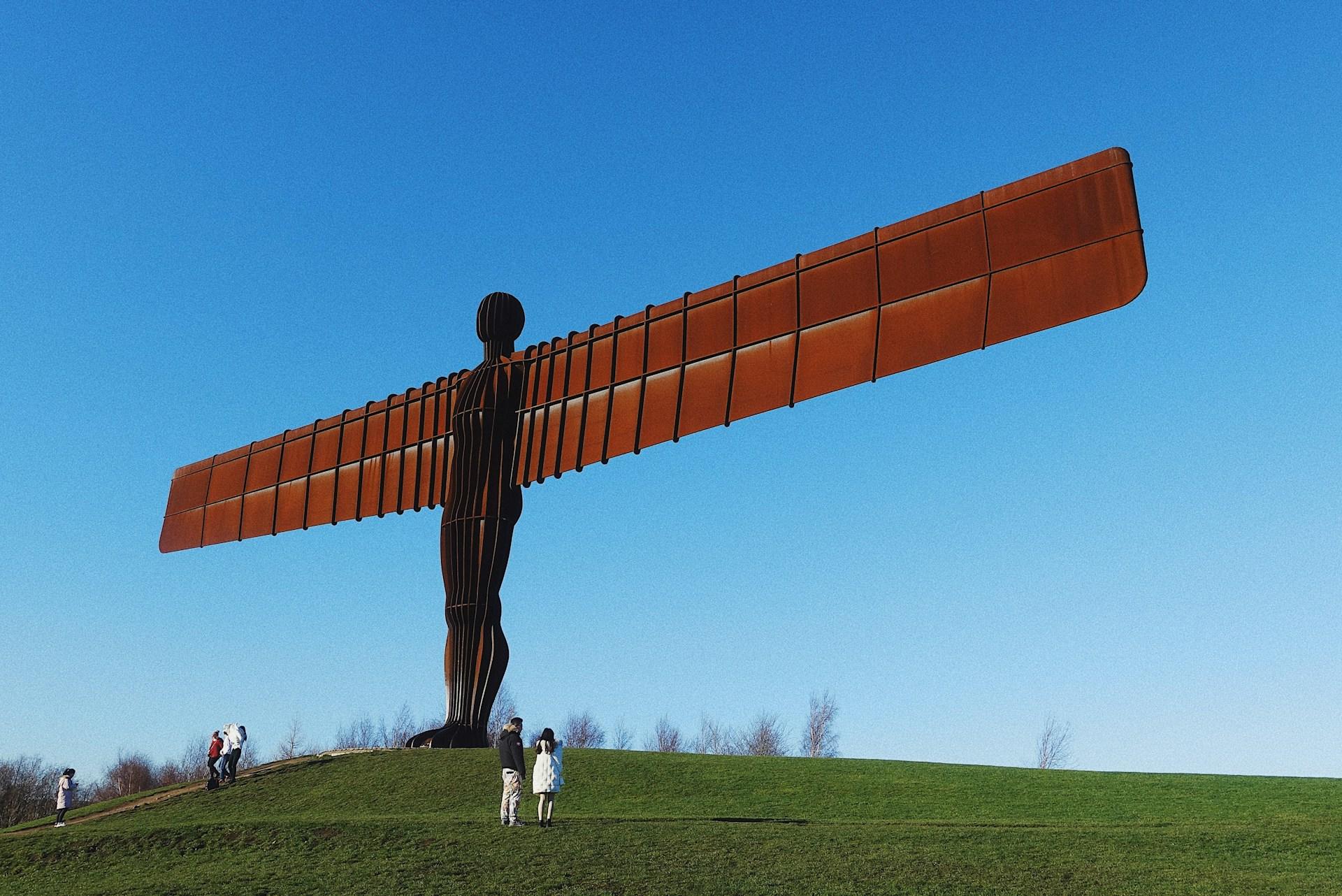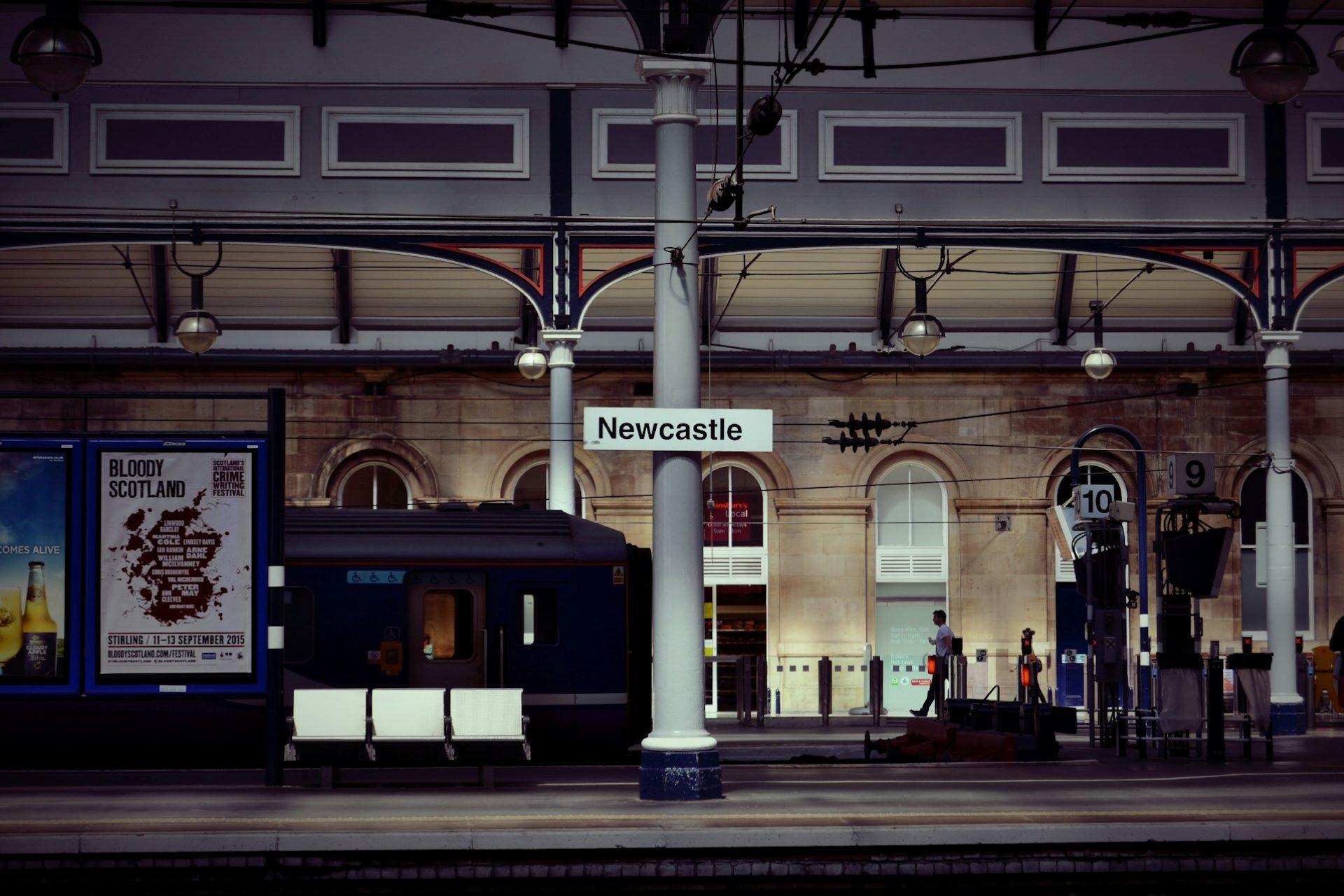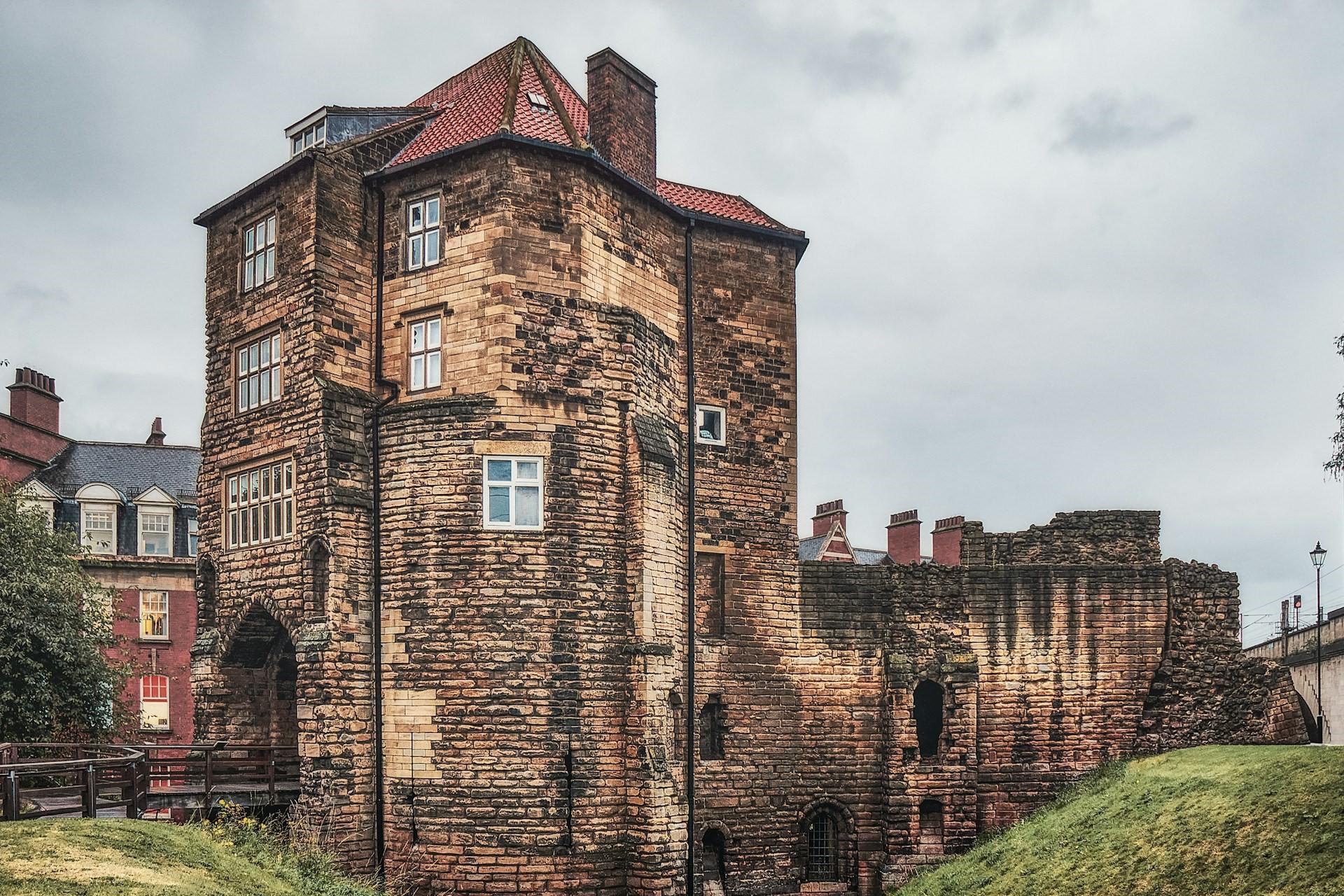Not that you can hear it in my articles, but I'm a Newcastle native and a proud user of the Geordie dialect. Apparently, linguists call it Tyneside English or Newcastle English, but I can tell you that in every conservation that I've ever had, it's been called Geordie.
So what exactly sets the Geordie accent apart, where is it spoken, and what makes it so fascinatingly unique?

Where Exactly Is Geordie Spoken?
As mentioned, the Geordie accent is directly from Newcastle upon Tyne, a city in the northeast of England, but it can extend beyond the official city borders.
Typically, the accent extends into the surrounding area, known as Tyneside (named after the river Tyne running through it).
For those from outside the northeast of England, the Geordie is often mistakenly associated with accents from other parts of the northeast. The same misconception occurs with the Brummie accent from Birmingham, with people erroneously grouping all surrounding and related accents together.
The urban area around Newcastle and along the river tends to produce Geordie speakers. Still, in the neighbouring and rival city of Sunderland, just over 20km away, they speak with the Mackem accent, with its own characteristics and unique features.
As you travel from Newcastle to Sunderland or vice versa, the likelihood of encountering one accent over the other will start to shift. In the areas between the two, the accent somebody speaks with will likely be down to their family and even the football team they support!

It's also quite common for those from outside of the northeast of England to refer to all northeast accents as Geordie. While there are certainly similarities across the accents, in comparison to other accents around England, locals can reasonably quickly work out whether somebody's from Newcastle, Sunderland, Middlesbrough, or the towns north of Newcastle across the region of Northumberland.
Only the accent from Newcastle and Tyneside is the Geordie accent. The Sunderland accent and dialect are known as Mackem. Further south, there's the Teeside accent. Then you have the Northumbrian accents and even Pitmatic or Yakka, the dialect spoken in Northumberland and mining areas in County Durham.
Why Is It Called Geordie?
There are several competing theories as to why it's called Geordie. Some people think it's from the name George, as many miners in the area had this name.
Some believe it's because the people of Newcastle upon Tyne supported King George during the Jacobite Rising, during which James Edward Stuart claimed the throne.
There are also folk etymologies for Geordie from mining. One suggestion is that miners in and around the Newcastle area preferred the "Geordie" mining lamp to the Davy lamp.
Nobody really knows why it's called "Geordie" as there are too many competing theories.
Many words for different accents and people from other cities around the UK don't make much sense. After all, Scouse for Liverpool comes from a stew popular with sailors, with Cockney supposedly coming from "cocks' egg".

Characteristics of the Geordie Accent
So what does Geordie sound like?
Firstly, it's worth noting that linguists believe Geordie is the oldest dialect in English, with many characteristics of the accent and dialect remaining unchanged from the Old English spoken by Anglo-Saxons in England.
While many assume that London accents are more valid than regional accents, you could argue that Geordie is the original English accent.
As with any accent or dialect, the unique differences are what make it interesting, and Geordie has a number of features that mean vowels and consonants are different than in other English dialects, even those in England.

Consonants in Geordie
The Geordie accent uses the glottal stop, which occurs when the flow of air is obstructed by the glottis. In other accents around England, this tends to occur in words with a "t," like "bottle."
Geordie is also a non-rhotic accent. This means the "r" when preceded by a vowel isn't usually pronounced as an "r". Instead, this "r" changes the pronunciation of the vowel, which is why words like "cat" and "cart" are pronounced differently, but the "r" in the latter isn't pronounced as it would be in a word like "rat".

Vowels in Geordie
The vowels in Geordie are also different. The Geordie accent pronounces the "a" in words like "bath" and "grass," much like many other accents in northern England, including Manchester accents.
The “er” sounds at the ends of words like “butter” may sound more like an “a” in other English accents.
There's also the nurse-thought merger, where the vowels in both words are pronounced like the latter.
Geordie also changes the "ow" sound in "town" to more of an "oo" sound. So much so that town is pronounced like toon, and Newcastle, which is known locally as "town" or "the town," is called "The Toon," a name which also extends to Newcastle United Football Club.
Geordie Grammar
Plenty of grammatical features in the Geordie dialect differ from many other English language dialects.
I could discuss them all day, but I'll highlight some of the most significant ones.
Pronouns in Geordie
Personal pronouns in Geordie are a little different. Instead of I, you, he/she/it, and they, Geordie also regularly uses "yous" or "youse" for the second person plural, which anyone who's studied a language with this feature should agree is quite helpful.
Geordie doesn't need a "you all" or "all of you". "You" can also be "ye", which means "yous", and also be "yes". The Welsh language, which influenced many Welsh accents, also features a distinction between singular and plural second person.
The personal object pronouns in Geordie are also different. Instead of me, you, him, her, us, and them, Geordie notably replaces "me" with "us", "uz", or "iz". Similarly, "us" can be replaced with "we", which is pronounced more like "wuh" or to the very start of the word "wood" but before the "oo" sound.
Also, “my” is “me” and “our” is “wor”.
Contractions in Geordie
We don't use “can't”, “won't”, and “don't”. Instead, we prefer “cannet”/“cannit”, “winnet”, and “divvent”.
It's also common for the negative contractions to be split differently from other variants of English. For example, instead of saying "he isn't", you can say "he's not", leaving the "not" uncontracted.
Conversely, Geordie can add a "v" to the end of "to" if the following word begins with a vowel. For example, "give it to me" would be "give it tiv us".
Geordie Vocabulary
With so many changes to seemingly fundamental English grammar, the Geordie dialect naturally features many unique and exciting words.
Here are just a few of them.
| Word | Meaning |
|---|---|
| Aye | Yes |
| Bairn | Child |
| Bobby | Police officer |
| Canny | Good, nice, pleasant |
| Charva | A rough or unruly person |
| Claggy | Sticky |
| Clarts | Mud |
| Cowie | Cold |
| Deeks | Eyes, look |
| Divvent | Don't |
| Doon | Down |
| Gadgie | Man, bloke |
| Gan | Go |
| Geet | Very |
| Giz | Give |
| Howay | Come on |
| Hoy | Throw |
| Kets | Sweets |
| Lass | Girl |
| Lad | Boy |
| Larn | Learn |
| Larny | Smart, clever |
| Lush | Great, nice, delicious |
| Maa | Mother |
| Marra | Friend |
| Netty | Toilet |
| Nout | Nothing |
| Oot | Out |
| Radgie | Angry, a person acting irrationally |
| Reet | Right |
| Scran | Food |
| Spelk | Splinter |
| Stot | Bounce |
| Stottie | A type of bread |
| Taak | Talk |
| Tattie | Potato |
| Wae | With |
| Wey aye | Yes, of course |
| Yem | Home |
| Ye knaa | You know |
Some are also used outside Newcastle and Tyneside, and many are shared with certain Scottish dialects, but many are unique to the Geordie dialect.

Famous Geordie Speakers
To better understand the Geordie accent, you should listen to people who speak it.
I wouldn't recommend diving into the deep end with the broadest examples you can find. Instead, look to famous Geordies, especially those in film and TV who have to give interviews regularly, as they'll likely modulate their accent.
Ant and Dec
Ant and Dec are two TV presenters from Newcastle upon Tyne.
The two started in a TV series for children called Byker Grove, set in Newcastle and performed as a pop group as the names of their characters in the show.
After that, they've had a lengthy television career, always presenting together as a duo.
Here are the two, as the hosts of the TV show Britain's Got Talent, "translating" for a contestant from Newcastle who has an accent that the panel is struggling to understand.
Brian Johnson
The singer of the rock group AC/DC hails from Dunston, across the river from Newcastle and was formerly in a band called Geordie.
Despite years of touring the world with AC/DC, he hasn't lost any part of his accent.
He talks about joining AC/DC here, mostly in his Geordie accent. However, he likes to imitate other accents when telling stories, including his impressions of German and Australian accents.
Cheryl Cole
Cheryl Cole is a singer. She was in the group Girls Aloud and also appeared on television shows like The X Factor, where she was a judge. She was also on the US X Factor, but she was supposedly axed from the show because her accent was too strong.
Here's a news featurette about her time on the series, complete with the voiceover artist from the Big Brother TV series, who also has a Geordie accent and is from Gateshead, the town across the river from Newcastle.
Summarise with AI:
















